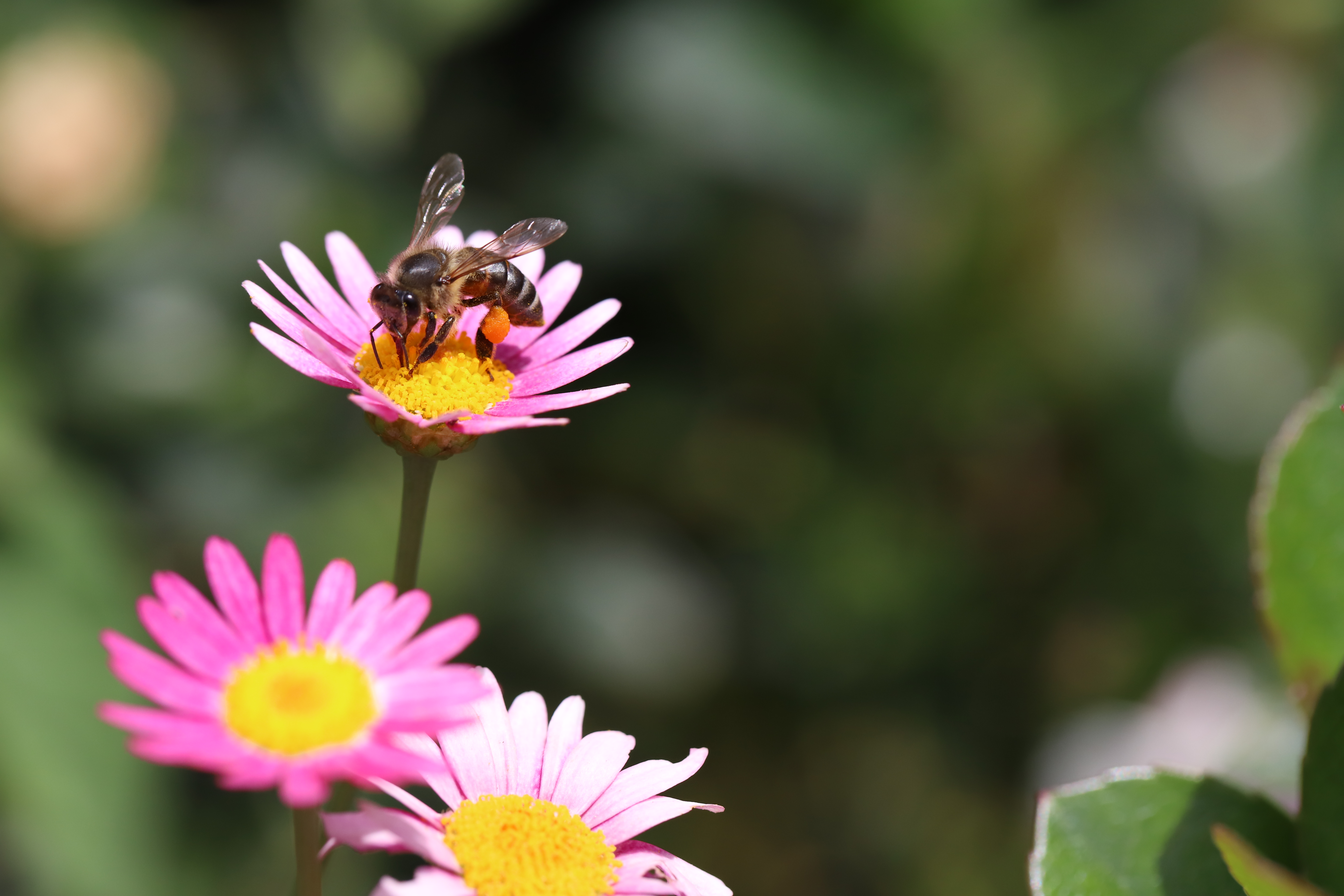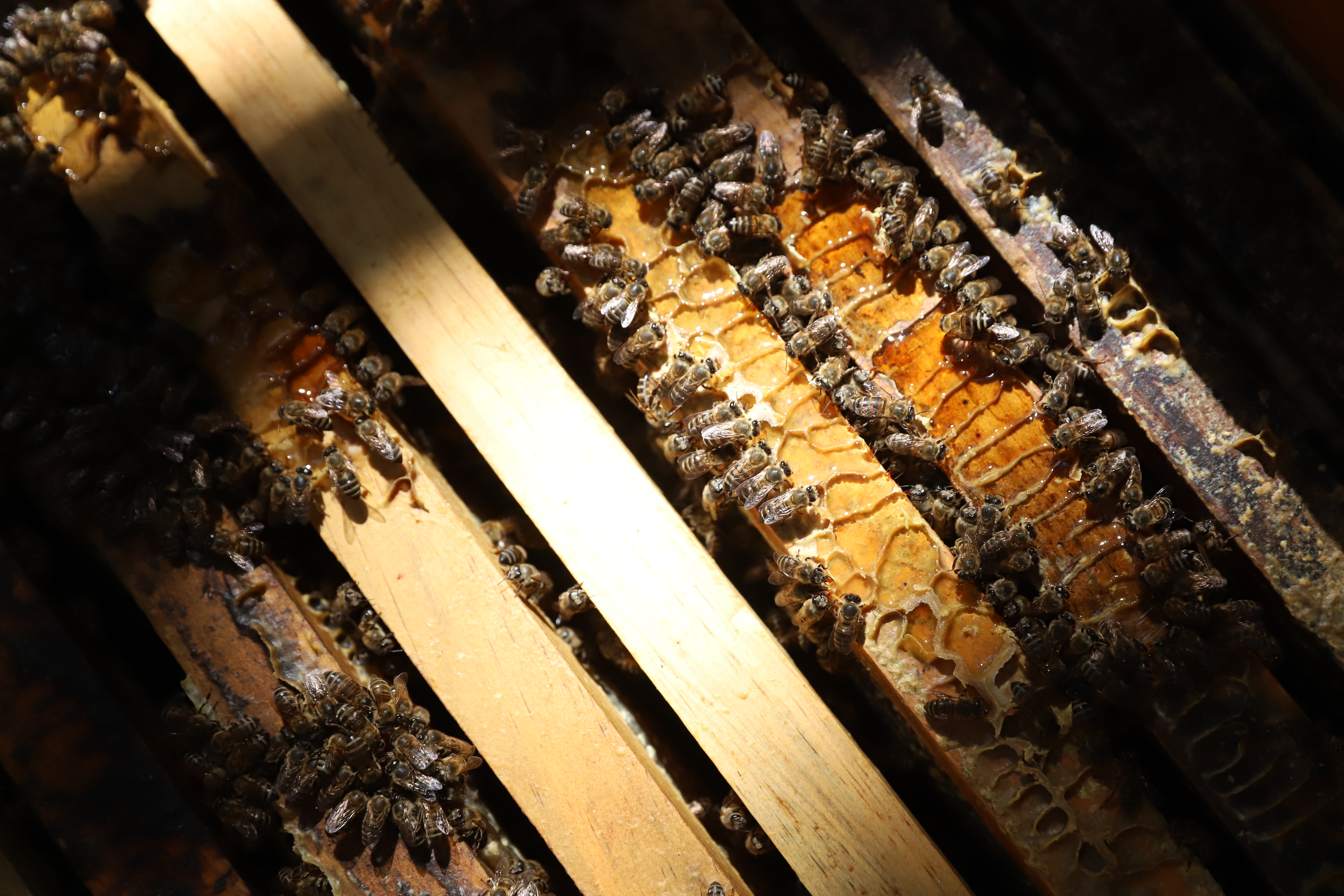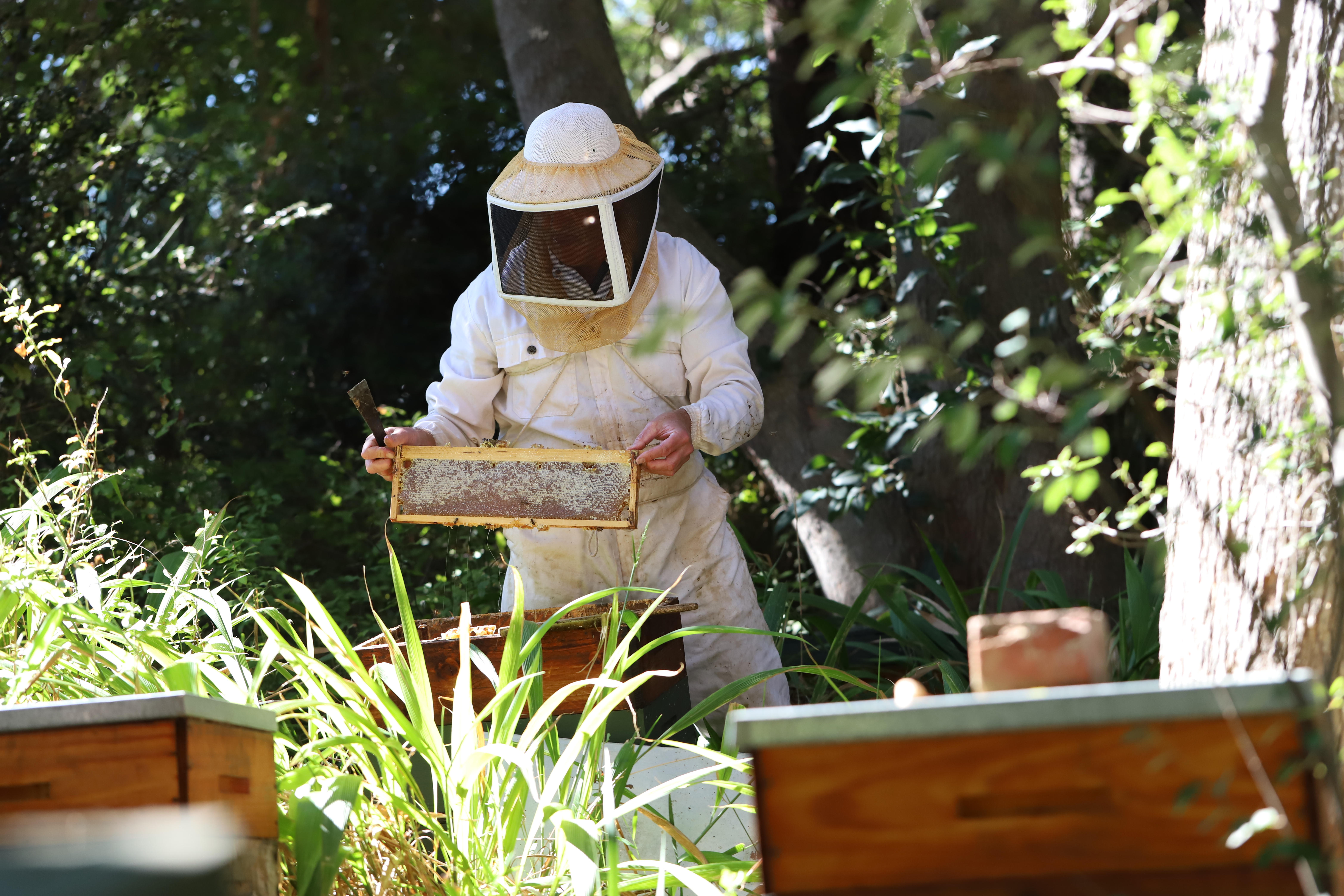The United Nations sanctioned World Bee Day is marked annually on 20 May, with the purpose of acknowledge the role of bees and other pollinators in the global ecosystem.
Top South African honeybee scientist, Mike Allsopp, has hailed the wonders of the Cape honeybee (Apis mellifera capensis), including its resistance to the most vicious pest that has devastated beekeeping in many parts of the world.
Allsopp, the lead honeybee researcher at the Agriculture Research Council, the ARC, told beekeepers who work with Cape honeybees to remember that it was “a very special honeybee”, akin to Kim Kardashian in the “world celebrity stakes”.
 Here are some interesting facts about the Cape honeybee that might surprise you:
Here are some interesting facts about the Cape honeybee that might surprise you:
- Infertile female workers in Cape honeybee colonies have the unique ability to lay fertile eggs. They’re able to literally clone themselves, which typically happens if the queen dies prematurely, thereby saving the colony from an almost certain end. This extremely rare phenomenon is known in the scientific world as Thelytokous parthenogenisis and is reported in about 1 of 1000 described animal species.
- The Cape honeybee is very resilient in the face of attacks by the highly destructive Varroa mite, which has caused mayhem in bee colonies around the world. Allsopp Cape honeybee nurse bees routinely remove the wax cappings of the cells in which the larvae, or baby bees, develop. This is a massive chore, as each side of the comb can have up to 4000 cells. If the nurse bees detect a problem, they haul out the larvae and dispose of it. Allsopp describes this unusual recapping behaviour as ”checking under the hood” and says this is “the number one factor in our bees to overcome Varroa and other serious diseases such as American Foulbrood”.
- Female worker bees in Cape honeybee colonies have the startling ability to produce the same pheromones as the queen. The queen emits these pheromones to largely control and
influence the smooth-running of the colony. The workers mimic this and become pseudo-queens, receiving the royal reverence from other workers that is normally reserved for a real queen. - But there is a sinister side to the marvels of the Cape honeybee. The laying workers have the capacity to infiltrate and take over the hives of our other indigenous honeybees, Scutellata, which occur outside the fynbos biome.
- In this respect, the Cape honeybee is a “unique social parasite”, so much so that it is listed as a bio-security threat in other parts of the world. People attempting to import the Cape honeybee into the United States can be charged with terrorism!

Alsopp says both South Africa’s indigenous honeybee populations are robust in comparison with honeybees in the rest of the world where there are dire predictions about their long-term survival.
Climate change, mono-cultural farming, the reckless use of pesticides, bee pests and diseases are causing significant losses of honeybees, traditionally regarded as apex pollinators.
The biggest challenge facing South African beekeepers is rapidly dwindling forage for their honeybees. This threatens the large-scale pollination service that beekeepers provide to local agriculture.
Honeybees pollinate one in every three mouthfuls of food we consume.
Photo credit:
Chris Nicklin



